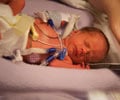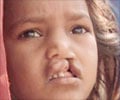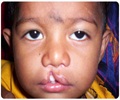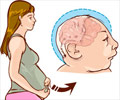A multidisciplinary research team at Case Western Reserve University in America has uncovered a gene the absence of which may lead to a number of birth defects, which affect the development
A multidisciplinary research team at Case Western Reserve University in America has uncovered a gene the absence of which may lead to a number of birth defects, which affect the development of the heart and head.
Dr. Gary Landreth, a professor in the School of Medicine's Department of Neurosciences, says that abnormal development of the jaw, palate, brain and heart occur due to genetic errors that affect a key developmental pathway.He joined forces with Dr. William Snider at the University of North Carolina to create a mouse model of such disorders, by removing a gene called ERK2.
Interestingly, the ERK2 gene is central to a well-known pathway already associated with a different distinct group of cardiac and craniofacial syndromes that include Noonan, Costello, Cardiofaciocutaneous syndrome, and LEOPARD syndrome.
Another researcher called Dr. Michiko Watanabe, a professor of Pediatrics, looked at the mouse hearts and found that they had characteristic heart defects resembling those seen in the patients with ERK2 deletions.
"Given Dr. Watanabe's findings, we determined that we had in fact developed animal models that mimicked the human deletion syndrome. This work sheds light on how these developmental errors occur," said Landreth.
Dr. Sulagna Saitta, a human geneticist at Children's Hospital of Philadelphia, had previously shown that children with comparable heart defects and subtle facial differences were all missing a very small region of chromosome 22, which contained the ERK2 gene.
Advertisement
The new findings attain significance as they link together several distinct syndromes that are each characterized by cardiac and craniofacial abnormalities, and show that they can result from perturbations of the ERK cascade.
Advertisement
Source-ANI
SK













